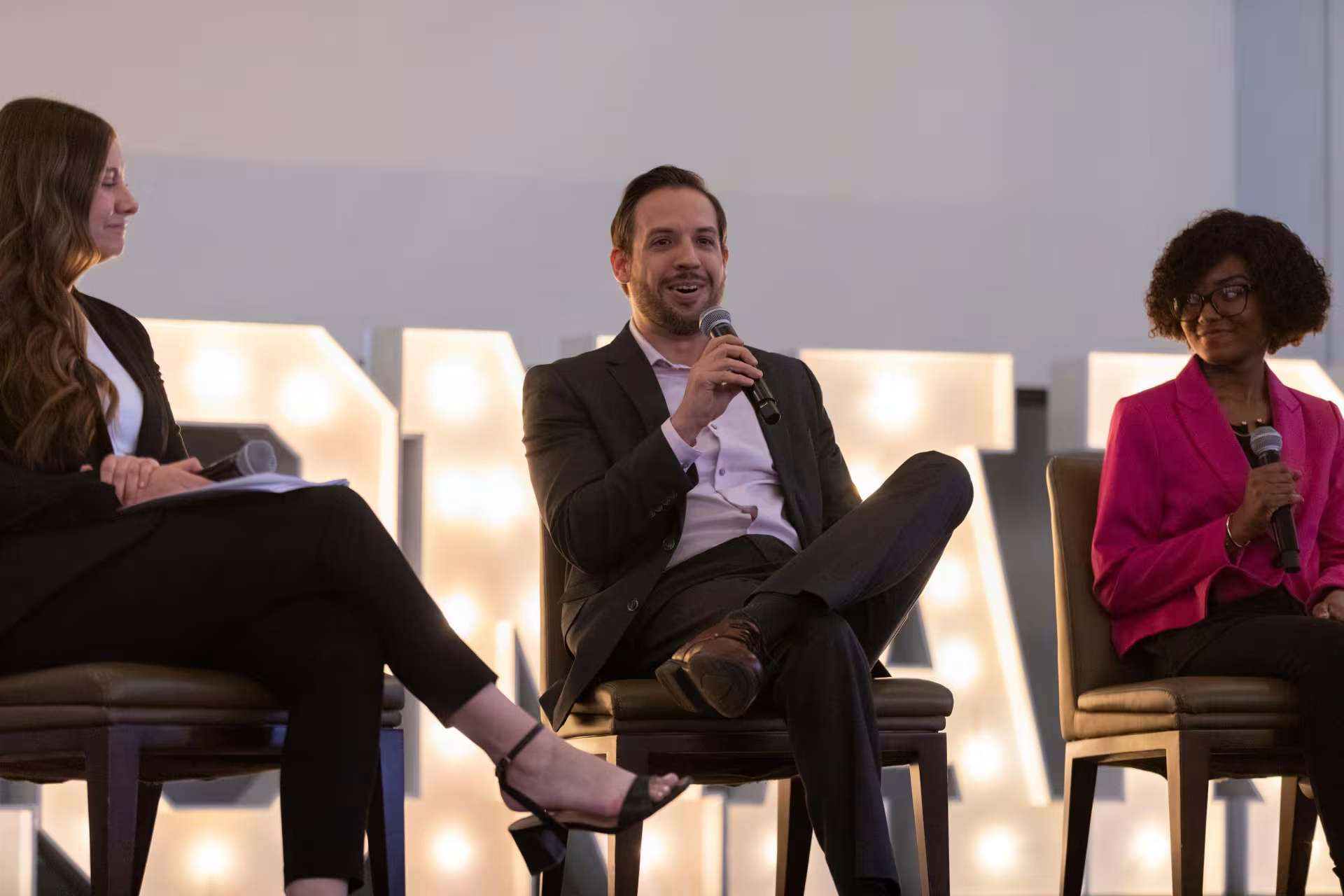Read time 5 minutes
Published on Aug 15, 2022
Healthcare is arguably one of the most rewarding career fields, although it is one of the most challenging. The challenges of healthcare have evolved over time. In the 19th century, for example, the field lacked uniform and formal medical schooling for new doctors — which did not facilitate favorable patient outcomes.(See disclaimer 1)
Today, medical education and licensing standards are modernized, but leadership in healthcare is facing new and evolving challenges. If you’re a healthcare professional, whether clinical or administrative, one approach to developing more effective leadership models in healthcare is to enhance your own qualifications. By returning to school to pursue your doctorate, you will be better equipped to tackle a wide range of challenges, including those discussed below.
The Modern Challenges Facing Healthcare Leadership
Leaders in healthcare face many continuing and emerging challenges. When brainstorming solutions and making decisions regarding those challenges, it’s essential for healthcare leaders to prioritize the well-being and best interests of the patients, as well as the need for organizational effectiveness and profitability. Making these decisions is not always easy, but leadership in healthcare can be guided by evidence-based research and by the principles of ethical servant leadership.
The Increased Use of Telemedicine in Healthcare
Telemedicine (the use of digital technology to virtually connect patients with healthcare providers) is not an entirely new concept. However, it was widely used during the COVID-19 pandemic. Once lockdowns were initiated, both patients and providers recognized that telemedicine was a potential solution to the question of how to meet the needs of patients while reducing their in-office visits as much as possible.
On the surface, telemedicine seems like an ideal solution. Yet, it’s not without its problems. For instance, not all healthcare organizations can afford to purchase the necessary information technology (IT) infrastructure for their offices.
Similarly, not all patients have access to the digital technology that is necessary to connect with providers. The need to address healthcare inequities is a pressing one for leadership in healthcare. Other challenges associated with the rise of telemedicine include the following:
Continuing Shortages of Qualified Staff
The COVID-19 pandemic has been one of the most significant healthcare challenges in modern times, and it has led to a wide range of dilemmas for leadership in healthcare. Healthcare providers have been on the front lines of the crisis since 2020.
These providers are under significant stress, and they are burned out (almost 60% report negative mental health due to work stress). The 2021 Washington Post-Kaiser Family Foundation survey found that almost 30% of healthcare workers are thinking about exiting the field because of pandemic-related stress and professional burnout. In other words, the pandemic has been exacerbating the already-dire shortage of healthcare professionals — a shortage estimated to reach 3.2 million by 2026.(See disclaimer 3)
These staffing shortages affect both physician and nurse roles. It’s a significant problem that can lead to unsafe caseloads for healthcare providers, which in turn increases the likelihood of poor patient outcomes. Healthcare leaders will need to develop creative solutions to meet their staffing needs in the years to come.
The Rise of Personalized Medicine
Personalized or precision medicine offers great promise for patients. In oncology, for instance, it allows providers to develop care plans that are designed specifically for the patient’s unique genes or the genes of their specific cancer cells. Precision medicine allows for more accurate diagnoses and more effective, safer treatments — especially for cancer, rare diseases and other difficult-to-treat conditions.
Unfortunately, precision medicine is prohibitively expensive. With few exceptions, health insurance companies are not in the habit of offering coverage for these gene-based services, so patients are often faced with the prospect of paying out of pocket for potentially life-saving care. It will fall to the healthcare leaders of today and tomorrow to determine how best to increase access to precision medicine in fair and equitable ways, while keeping costs for all parties manageable.
The Need for Community Partnerships to Manage the Opioid Crisis
Doctors and nurses have long worked to manage the epidemic of drug abuse in the U.S. and around the world. In recent years, drug overdoses have increased substantially. The number of drug overdose deaths has continuously been rising since 1999 — those who died from a drug overdose in 2021 was more than six times the amount in 1999.(See disclaimer 4)
There is a pressing need for stronger and closer partnerships among healthcare providers and community law enforcement officials, as police officers are often the first to arrive at the scene of a drug overdose. With strong law enforcement and healthcare partnerships, more lives could potentially be saved.
A Doctorate Degree Can Enable You to Rise to the Challenge
It’s no secret that many healthcare administrators and clinical professionals decide to earn a doctoral degree in order to pursue advanced positions within the organization. However, improving one’s career qualifications to position oneself for promotions is just one reason why it’s beneficial to earn a doctorate in healthcare.
During a doctoral program, students take a deep dive into evidence-based research on timely issues affecting the field. They fine-tune their critical thinking and analytical reasoning skills, and they learn to embrace better, more ethical leadership models in healthcare.
Learning how to become a more effective, inspiring and empathetic leader is something that will benefit the entire healthcare organization and the field as a whole. Healthcare leaders who become more capable through doctoral education are better able to effect positive change throughout their organizations, and these benefits trickle down to the patients. No matter what the challenges of today are, or how future challenges will affect healthcare, doctorate-equipped healthcare leaders can develop innovative, effective solutions.
How GCU Is Supporting Strong Leadership Models in Healthcare
At Grand Canyon University, we’re taking the lead in preparing the next generation of healthcare leaders to face the complex issues of today and tomorrow. The College of Doctoral Studies offers multiple doctorate degree programs in healthcare to enable professionals to rise to meet common healthcare challenges while preserving the principles of servant leadership and ethical decision making.
If you choose to earn your doctoral degree at GCU’s College of Doctoral Studies, you can expect exceptional support from our faculty, and you’ll benefit from the extensive resources available to you. These include the guidance available from the Office of Institutional Effectiveness, the Office of Research and Dissertations and the Center for Innovation in Research and Teaching.
In addition, you’ll join our virtual scholarly community hub, the Virtual Doctoral Community Network(See disclaimer TM). The DC Network serves to keep learners connected and informed, and to encourage collaboration among healthcare leaders. You’ll continue to enjoy access to the DC Network even after graduation.
When you’re ready to embrace next-generation leadership models in healthcare and rise to meet the evolving challenges of the field, you can apply for enrollment in one of our many healthcare doctorate degree programs. These include the Doctor of Health Administration: Operational Leadership (Qualitative Research) program, which explores an evidence-based approach to expanding leadership capabilities. Click on Request Info at the top of your screen to learn how you can join our supportive learning community at the College of Doctoral Studies.
Retrieved from:
(See disclaimer 1)American Battlefield Trust, Changes in Medicine During the 19th Century in April 2022.
(See disclaimer 2)American Hospital Association, Fact Sheet: Strengthening the Health Care Workforce in April 2022.
(See disclaimer 3 )Mercer, U.S. Healthcare Labor Market study in April 2022
(See disclaimer 4) Center for Disease Control and Prevention. (2024, April 5). Understanding the Opioid Overdose Epidemic in May 2024.





